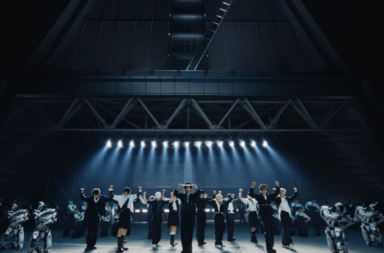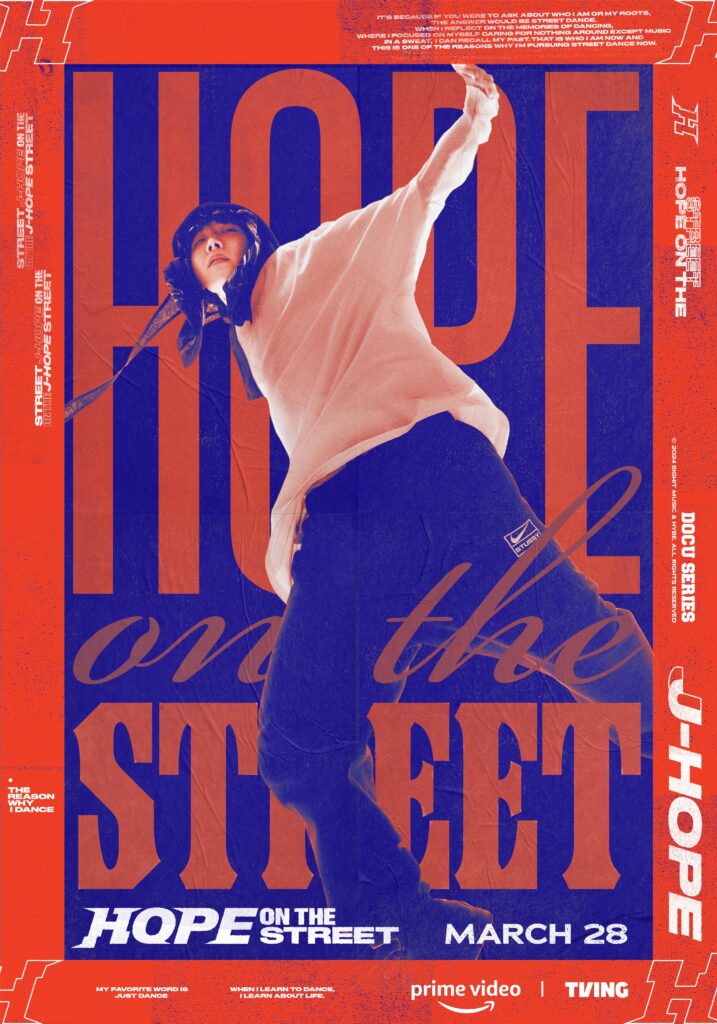
Influential dancer Boogaloo Kin, commenting on his participation in J-Hope’s new docuseries Hope on the Street, stated, “I didn’t agree to this because J-Hope of BTS asked me. To me, you’re just Hoseok, the kid I met when I was young… who asked many questions with a twinkle in his eye.”
The trajectory of J-Hope’s career has led to a search to rediscover the twinkle he had as young Jung Hoseok. His 2018 mixtape Hope World explores his J-Hope persona, from exuding bold confidence in “Baseline” or “Airplane,” to declaring his purpose as a “P.O.P. (Piece of Peace)” for others. His gritty 2022 album Jack in the Box deconstructs the Hope persona, with the singles “More” and “Arson” portraying his intense passion on the verge of burning out. In his song “What If?”, he questions his identity: “What if, what if, what if, I had no hope?”
J-Hope’s latest album, Hope of the Street Vol. 1, includes a remix of this track, and also revolves around his personal uncertainties. While Jack in the Box delves into the past with raw, introspective hip hop tracks, this new album, which also functions as an original soundtrack for the docuseries, soothes his doubts by reclaiming what he loved most: dance.
The Hope on the Street project as a whole recalls J-Hope’s roots as a street dancer before he debuted with BTS. The title itself is borrowed from his freestyle dance videos that would be posted on YouTube or Vlive. “Neuron” is named after his predebut dance crew in his hometown of Gwangju. Even the features on “Neuron” — legendary Korean hip hop artists Yoonmirae and Dynamic Duo’s Gaeko — hold sentimental meaning: J-Hope auditioned for BTS with Yoonmirae’s “Black Happiness”; the old-school hip hop sound evokes nostalgia.
Fitting for a work centered on dance, the album is pleasingly groovy, particularly the sequence of the funk-driven songs “I Wonder” and “Lock/Unlock” and the house track “I Don’t Know.” “Lock/Unlock,” produced by Benny Blanco and featuring Nile Rodgers on an electrifying guitar solo, especially stands out for its high energy. Featured in the episode about the locking dance style, the song cleverly depicts opening up (or ‘unlocking’) for the right person. His voice, sliding from low to high notes, mimics the locking and unlocking imagery in the song.
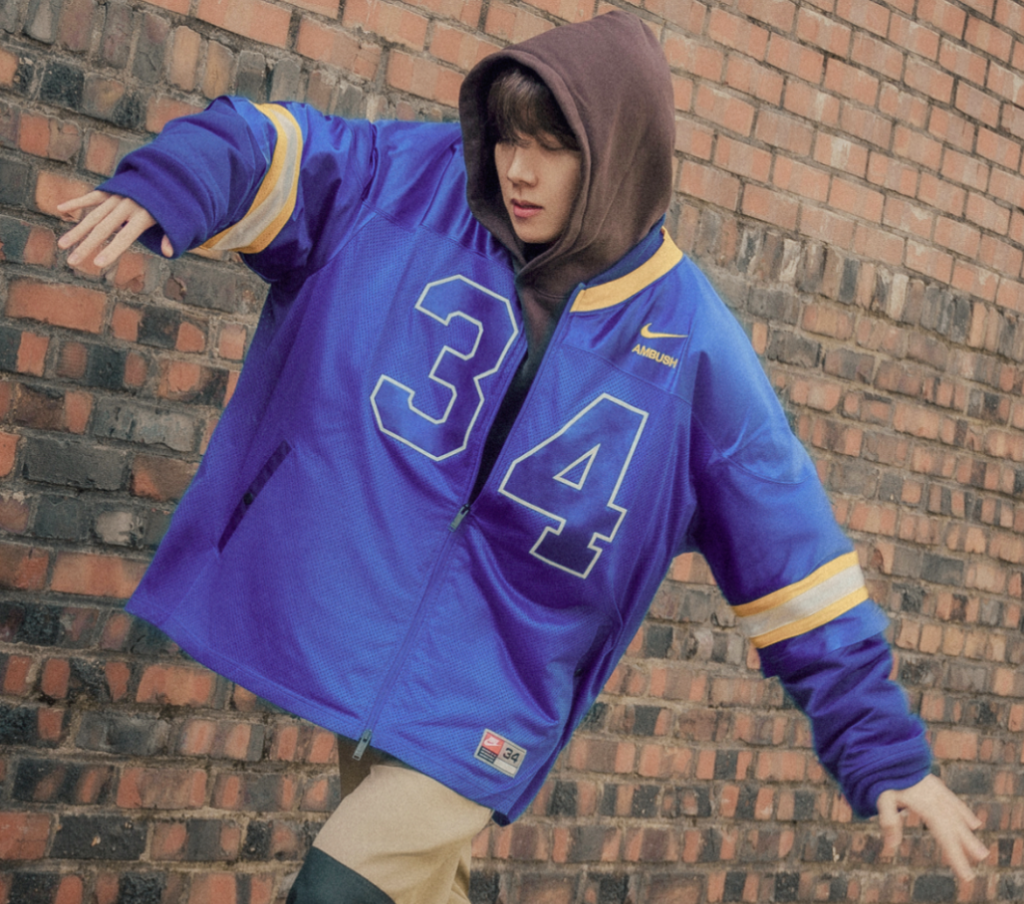
The songs on the album collectively ponder the past and wonder about the future. This theme is particularly relevant in the solo version of “On the Street” (which originally functioned as his last song prior to enlistment, and featured J-Hope’s idol J.Cole). In his new second verse that replaced J.Cole’s, J-Hope depicts the journey of life as a difficult one:
On the dark path, above, we try to smile
On the dry path, above, we try to cry
On the tough path, above, releasing rough screams
See the scarred flower path blooming
These lyrics depict the coping mechanisms one uses to cope with challenges, but ultimately in the chorus, J-Hope reiterates that he continues to walk, and will do so for his fans, ARMY.
In contrast to the assertion that his journey is “always for us,” the next track “I Wonder” begins with “I wonder everything about us.” J-Hope questions what his relationship will look like in the future. Ample autotune on J-Hope’s voice initially feels jarring, but it differentiates his brooding thoughts from the rest of the song.
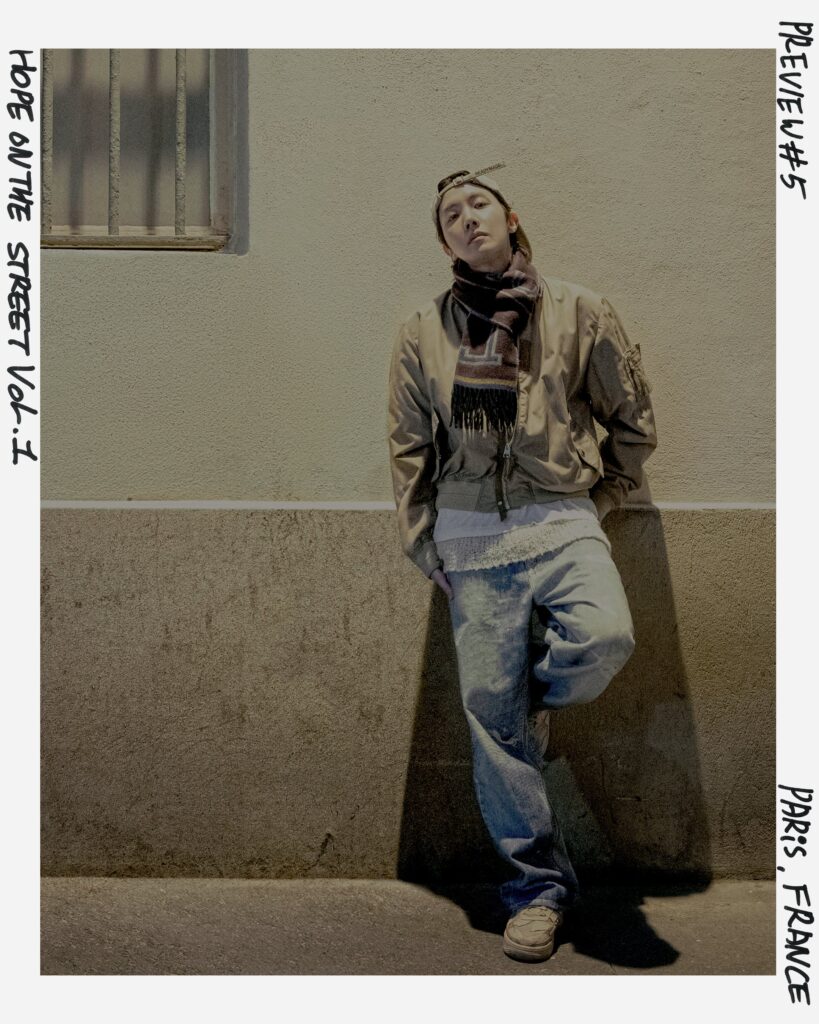
BTS’ main vocalist Jungkook features in the second half of the song, seeming to provide a response to J-Hope’s preoccupation with the future: “Just dance right now, but don’t stop looking forward.” With Jungkook’s warm and sincere delivery in both his upper and lower registers, the pre-chorus and chorus emphasize that keeping a relationship alive involves embracing the happiness of the present moment. While the song feels slight due to its short length (having only an instrumental intro, one verse, pre-chorus and chorus), “I Wonder” still effectively establishes the sounds and the themes of the album.
The Hope on the Street album and docuseries function as companion pieces to one another, reinforcing the themes of past, present, and future, and doubt and commitment. The title “I Don’t Know,” for instance, matches the uncertainty that J-Hope expresses in episode 4. He inquires about being in a slump and wonders how much he truly loves music and dance. By the end of the episode, however, one can see J-Hope’s smiles as he moves with French house expert Yungson. In this backdrop, the lyrics of “I Don’t Know” hit differently:
Yes, we’re on the edge
It’s true I’ve been caught up in my mind
Okay, I took it for granted
But I can’t lose you this time
I’ve changed me now
As with “I Wonder,” “I Don’t Know” seems to be a love song, particularly conveyed through the warm, beautifully textured harmonies of J-Hope and Le Sserafim‘s Huh Yunjin. In context of episode 4 of the series, however, the lyrics could also address his relationship with fans, and his relationship with his own creative drive. “I’ve changed me now” feels particularly poignant in terms of his career, suggesting he is breaking out of the slump he described in the docuseries.
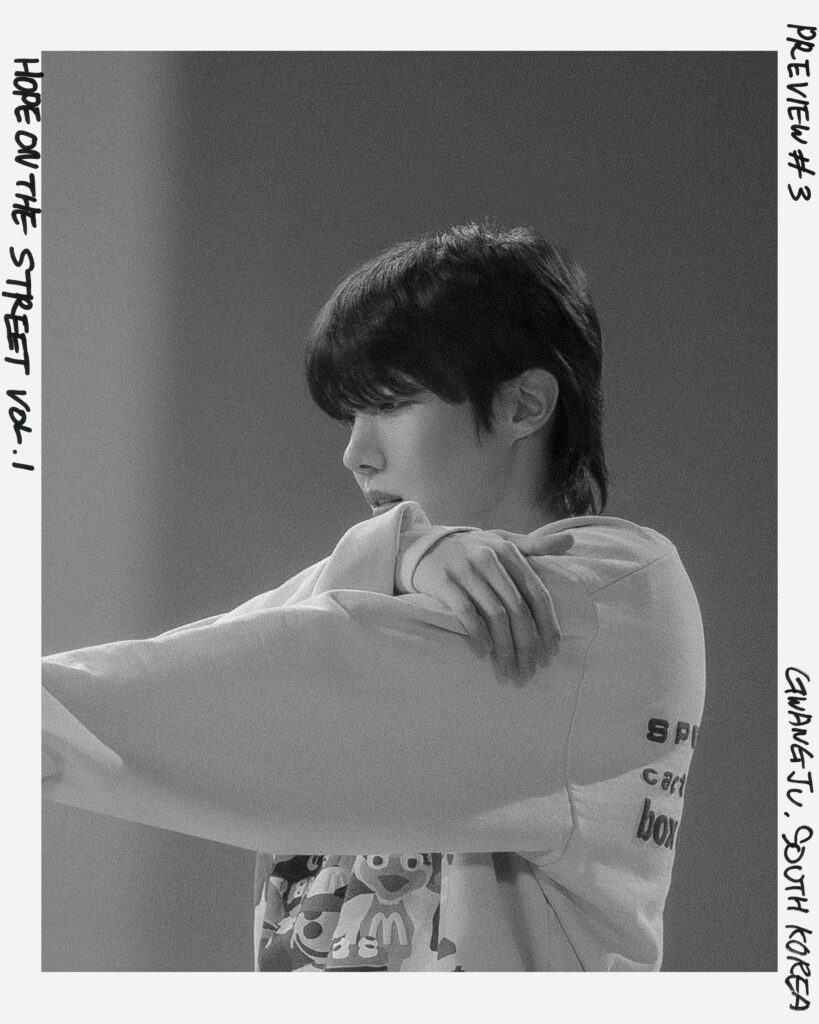
Bold and buoyant with its layered vocals, “Neuron” certainly suggests that J-Hope’s burnout has come to an end. It is a fitting closer to the Hope on the Street project, emphasizing how remembering past passions can spark them again. The word play with ‘neuron’ and ‘new run’ in the chorus underscores this connection between past and future. Gaeko and Yoonmirae’s verses provide the perspectives of veteran artists with their own individual flow, concluding, “Music and family, that’s what it’s all about.” While the featured artists’ voices add weight to the song, the final impression is J-Hope’s strong conviction in the outro: “We’ll never ever give up, forever.”
Overall, Hope on the Street Vol. 1 is an album that can stand on its own, with each song progressing smoothly to the next, and the entire work having a cohesive theme. While the album works without the context of the docuseries, it does become a richer experience with it. Just as the album contains an eclectic mix of musical genres, the series reveals J-Hope engaging in different dance styles. In both the album and the series, he features and pays homage to his inspirations in music and street dance.
As a combined project, Hope on the Street portrays what reconnecting to one’s roots looks like — both recalling one’s love of art and learning more about it. And in the process, learning about oneself too.
(YouTube [1][2]. Lyrics via Genius [1][2][3][4]. Images via Hybe Entertainment.)
